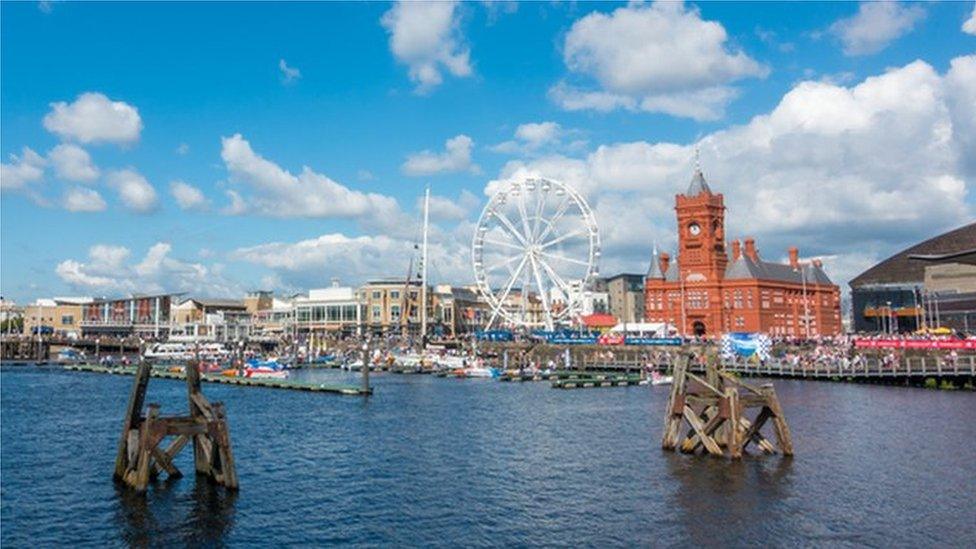Norwegian Church: Fears it could be turned into a McDonald's
- Published
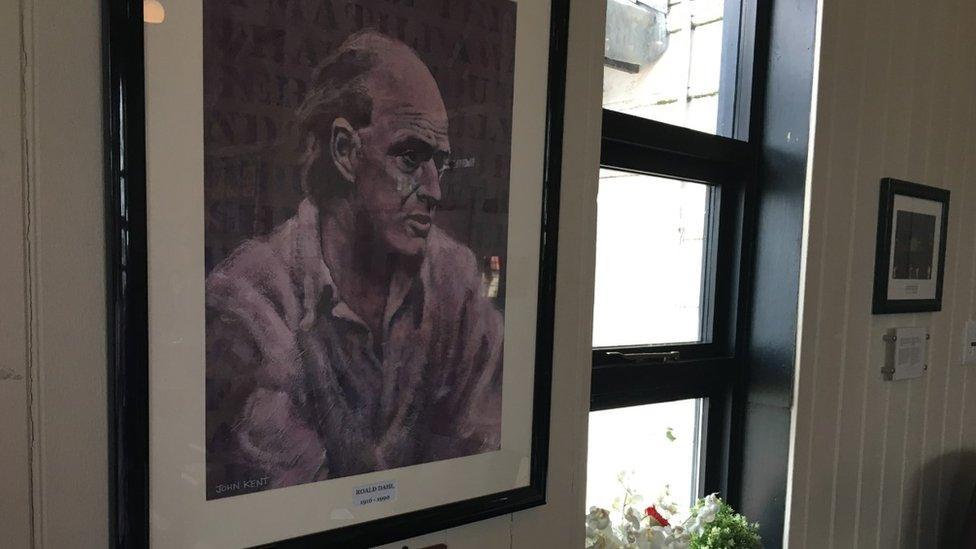
Roald Dahl was christened in Cardiff's Norwegian Church
Roald Dahl was christened there and it is as much a symbol of Wales' links to Norway as it is of the coal industry.
But a society's members are worried Cardiff Bay's Norwegian Church could be turned into a McDonald's or Starbucks, with its history lost.
Cardiff council is looking at ways to protect its heritage buildings.
While a spokesman said it would "preserve the integrity" of the church, it wants to realise its "undoubted commercial potential".
Currently, it hosts meetings of the Welsh Norwegian Society as well as acting as an art gallery, cafe and events space.
"Two of the biggest commercial establishments we have are McDonald's and Starbucks," said the society's chairwoman Dr Tyra Oseng-Rees.
"It is not listed. Our biggest concern is we could lose all the heritage and culture and it could be stripped back to being just a building.
"How sad it would be to lose the living part of the building."
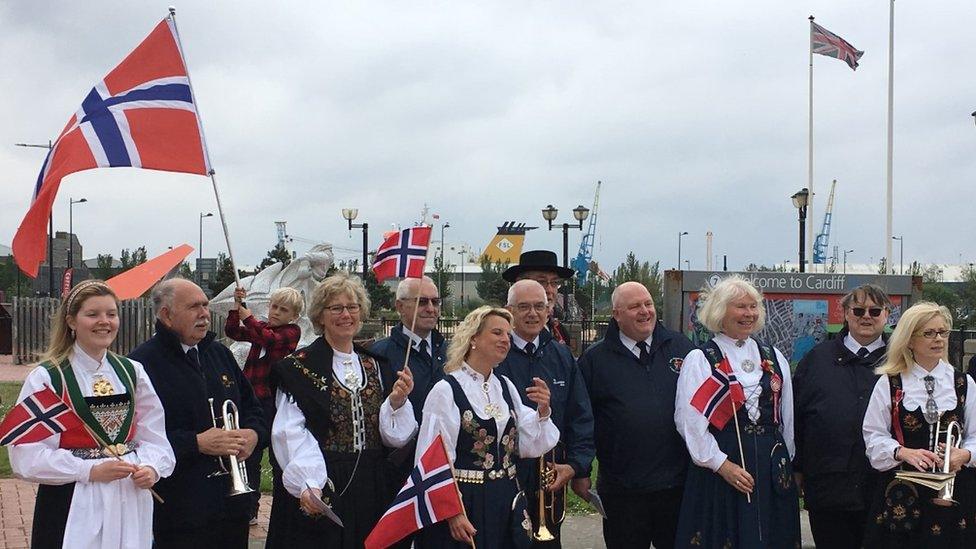
Celebrations take place on 17 May, the date in 1814 when Norway was declared an independent country
The coal boom era of the 19th Century created a long-lasting relationship, with durable Norwegian wood used to create pit props in south Wales mines.
With 70,000 sailors from Scandinavia arriving in Cardiff Bay a year, the church was built 150 years ago and quickly became a focal point, where workers could read Norwegian newspapers, send and receive letters, and socialise.
However, with the demise of the coal industry, it fell into a bad state with plans for the redevelopment of Cardiff Bay in the 1980s putting its future in jeopardy.
Locals in Hordaland began fundraising to save the world's oldest overseas Norwegian church, while children's author Dahl - whose parents arrived in Cardiff around 1900 - was also heavily involved.
From giant peach to Big Mac?
Their efforts meant the wooden building was moved from near where the Wales Millennium Centre now stands and reopened in 1992.
At first a special trust ran it but in 2006, it was handed to Cardiff council to preserve as a museum and cultural centre.
This relationship has continued, but the council decided last November to look at new ways to preserve heritage buildings amid a shrinking budget.
Dr Oseng-Rees added: "A commercial tenant could potentially change the use and not have a museum, stop people getting married.
"It's an art gallery, we meet here once a month."
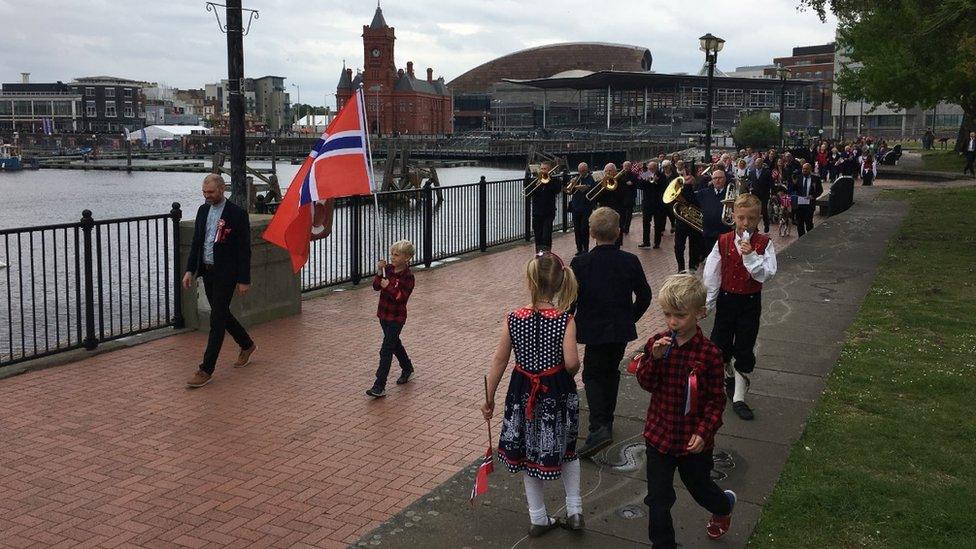
A procession took place from the Senedd to the Norwegian Church on Friday
On Friday, about 100 members of the Welsh Norwegian Society travelled to Cardiff from all around Wales to celebrate Norway's national day.
They marched with a band from outside the Senedd, before a special celebration at the church.
"It's a little bit of home we have here. It's a very important place for meeting friends," said Anne Kirsti Kirby.
Originally from Rygge, she moved to Gower three years ago to retire, and had made Norwegian cakes for the celebration.
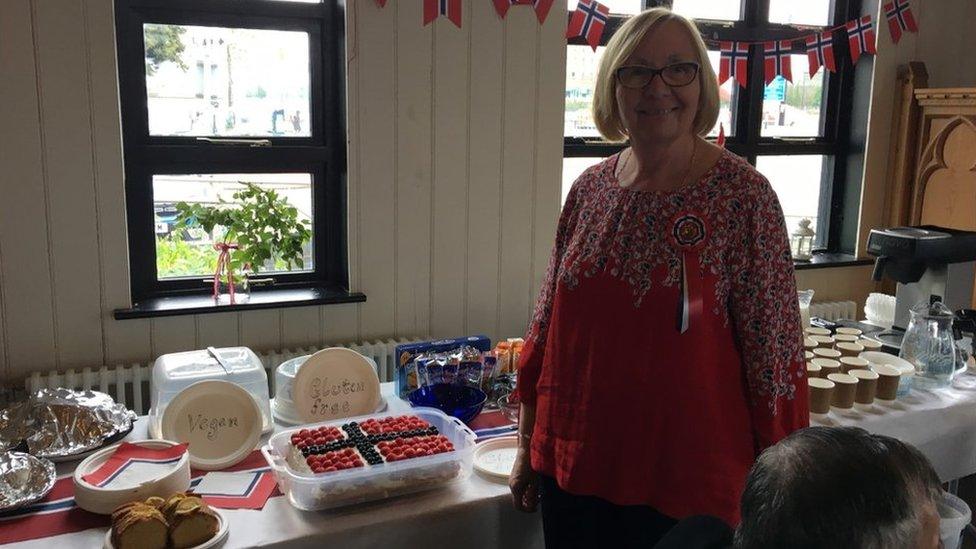
Anne Kirsti Kirby retired to Gower after falling in love with it while holidaying there
Others attending included students, descendents of Norwegian immigrants and others with a love for the country.
Concern has arisen following a Cardiff council decision last November to look at ways of saving its heritage buildings for future generations.
A spokesman described the Norwegian Church as "an iconic building on Cardiff Bay's waterfront" and said any future plans would "preserve the integrity of the building and improve the offering that is available".
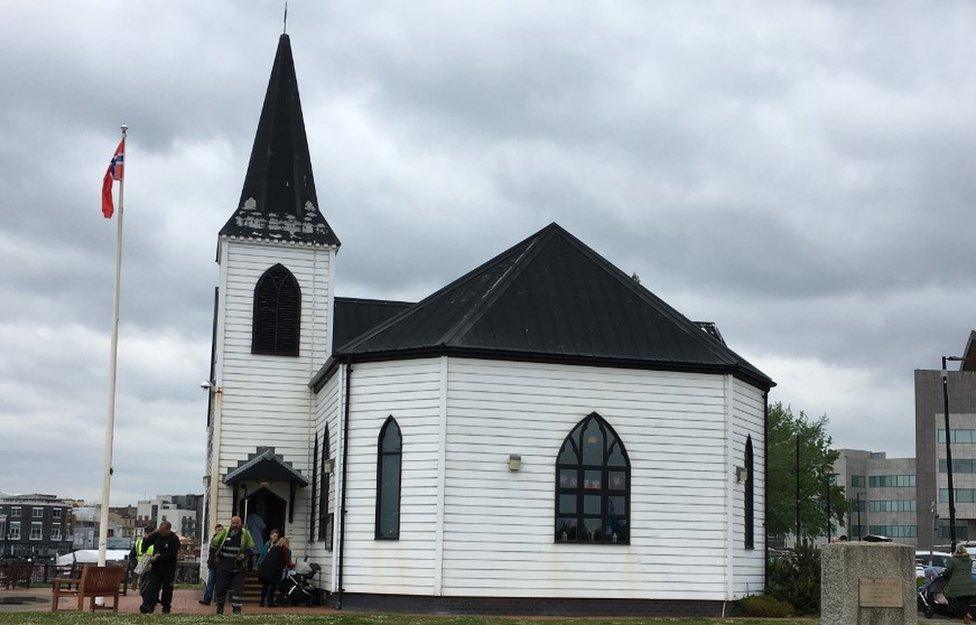
The church is now 150 years old and the oldest surviving Norwegian church outside the country
However, he added: "Unfortunately, cuts to the council's budget - £250m over the past 10 years and a further £90m expected over the next three years - means it becomes more difficult each year to justify ongoing financial subsidies when frontline services are being placed at risk."
He said the council was now looking at ways to protect the building while realising its "undoubted commercial potential".
"The Norwegian Church is in need of significant investment if that potential is to be realised and the council will have to look at new partnership arrangements if that is to happen," he said.
"No decision has yet been taken on the proposed future use of the building and further information will be released when it is available. "
- Published13 September 2017

- Published13 August 2017
